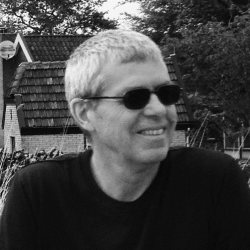 WORKSHOP 4
WORKSHOP 4
STEPHEN READ
with BOBAN VARGHESE, GAVIN McLACHLAN, PAUL MAKASA
For more information about Prof. Stephan Read click here
Note: This workshop is for M.Arch Students only.
A new commercial and cultural heart for PE? Looking to the future and critically engaging with contemporary urban development.
Cities develop. This is something cities have always done. Though at times in the past it must have seemed as if nothing changed, from the perspective of today we can see that cities have, in their relatively short history (relative to human history), changed almost continually. Even what cities are – the essence of their ‘city-ness’ – has never been entirely stable. Depending on where one looks back in history one sees cities that are predominantly political (the first cities in China were an integrated system designed to administer an empire) or predominantly economic (the first cities on the Anatolian plateau were centres of trade). All cities were centres of social and economic innovation and changed what people did, the ways they did things and what they expected from life. From the beginning cities attracted migrants and changed people by making them urban. More recently cities were rapidly expanding centres of industrial production, and more recently still they have become nodes in a global financial and production-consumption system. Or at least some of them have. Because today, in spite of the increasing integration of our global world, cities remain very diverse, with different local conditions and different needs and priorities. Cities like London support massive service sectors that are intrinsic parts of the global financial system, while a city like Reading in the London metropolitan region serve as relatively autonomous centres of employment in specialised services and industries. Cities like Shenzhen in the Pearl River Delta manufacture vast quantities of commodities for the global consumer market while a city like Guanlan in the region is a centre of small businesses specialised in printmaking for the art market. What a city does and its role and place in the world determines some of the questions we want to ask about its development. What it’s inhabitants expect from their lives, as well as ideals of rights and equity determine others.
We aim to be critical and to ask questions about how the city is to be developed. What is special about PE and what does it do? What ‘grand purpose’ could or should development here serve? Who lives in PE and what do its inhabitants want from PE’s development? What are the critical ethical, political and social issues we should be thinking of with the development of PE’s commercial and cultural heart. Perhaps the most important questions concern who development is intended for and who will profit from it? Who is included and who excluded from the benefits of development? Would the development be appropriate to the needs and ambitions of the people who live here?
The studio aims to engage critically with a brief formulated by the MBDA for the port and Baakens River area and to produce in groups a variety of thoughtful or provocative and socially and urbanistically engaged responses to that brief.
Workshop Homepage